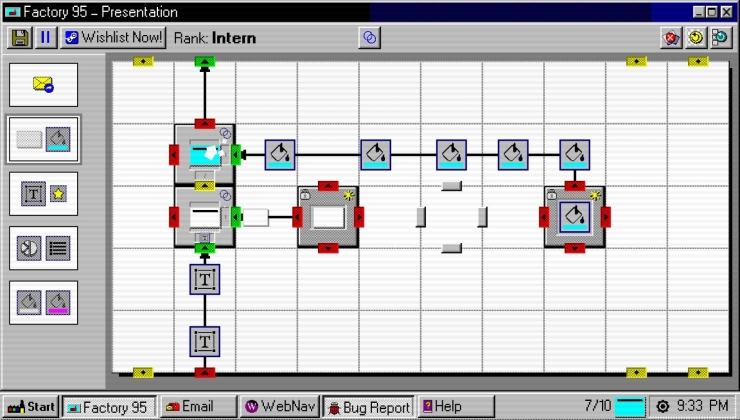Hey look, some good news about NFTs for once! Mojang has put out a new guide on the rules surrounding NFTs and blockchain.
You've probably seen the ridiculous amount of scams when it comes to NFTs especially, and companies using the "blockchain" when they have absolutely no need for it. Thankfully, Mojang have listened and put out some rules and the gist is that "integrations of NFTs with Minecraft are generally not something we will support or allow" they said.
Their news post goes over a brief intro to what NFTs actually are and giving a brief overview of why they have rules for server owners and content creators, which in brief is to "ensure that Minecraft remains a community where everyone has access to the same content". Part of the problem is how NFTs "create models of scarcity and exclusion that conflict with our Guidelines and the spirit of Minecraft".
Mojang make their position firmly clear on it all stating that "As such, to ensure that Minecraft players have a safe and inclusive experience, blockchain technologies are not permitted to be integrated inside our Minecraft client and server applications nor may they be utilized to create NFTs associated with any in-game content, including worlds, skins, persona items, or other mods.".
This is good, because it should hopefully prevent another Blockverse, which was supposed to be a "on-chain Ethereum NFT that enables a unique P2E on Minecraft". Can you guess how it went? They took a lot of money and then vanished with it.
However, they're not ruling out using blockchain in Minecraft if it might "allow for more secure experiences or other practical and inclusive applications in gaming" but they currently have no plans for it right now.
Want to get Minecraft on Steam Deck / Linux with Gamepad controls? Check out my guide.
There are imho two kinds of people who want NFTs in games: Publishers who want to scam gamers by making unfullfillable claims about the potentials of the technology, and gamers who do not understand the technology and therefore fall for the empty promises of those publishers.
Quoting: Mojangblockchain technologies are not permitted to be integrated inside our Minecraft client and server applications [1] nor may they be utilized to create NFTs [0] associated with any in-game content
Quoting: liamdThis is goodI'm going to disagree here, that's against:
0. Doing whatever I want to do with the software I run.
1. Changing that software to do what I want.
Note I'm not an NFT proponent, at all, but I still believe people should be free to do whatever they want with the software they run. (Of course Minecraft is not Free Software, but the world is not black & white and the more freedom we get as users the better IMO.)
I would prefer if that was a trademark thing instead: you do whatever modding you want with the game client and server, but if you want to mod for NFT support then forget about using our name and logo we do not want to be associated with it.
And shady stuff like Blockverse should be regulated by law, not by software EULAs.
Quoting: Nic264Hmmm . . . where you get into problems with that is that Minecraft is generally not a solo thing, and the use of these NFTs is something that is almost by definition not done by yourself. Further, the use of NFTs in a community setting is almost solely for the purpose of walling off most community members from doing (whatever the NFT does)--the whole point of NFTs is that they are supposedly Non-Fungible, meaning they can be reserved for one person and taken away from everyone else.Quoting: Mojangblockchain technologies are not permitted to be integrated inside our Minecraft client and server applications [1] nor may they be utilized to create NFTs [0] associated with any in-game contentQuoting: liamdThis is goodI'm going to disagree here, that's against:
0. Doing whatever I want to do with the software I run.
1. Changing that software to do what I want.
Note I'm not an NFT proponent, at all, but I still believe people should be free to do whatever they want with the software they run. (Of course Minecraft is not Free Software, but the world is not black & white and the more freedom we get as users the better IMO.)
I would prefer if that was a trademark thing instead: you do whatever modding you want with the game client and server, but if you want to mod for NFT support then forget about using our name and logo we do not want to be associated with it.
And shady stuff like Blockverse should be regulated by law, not by software EULAs.
Thus you could look at NFTs themselves as going against (0) and (1), and banning them contrariwise as supporting those ideas.
Quoting: Purple Library GuyHmmm . . . where you get into problems with that is that Minecraft is generally not a solo thing, and the use of these NFTs is something that is almost by definition not done by yourself. Further, the use of NFTs in a community setting is almost solely for the purpose of walling off most community members from doing (whatever the NFT does)--the whole point of NFTs is that they are supposedly Non-Fungible, meaning they can be reserved for one person and taken away from everyone else.Amen! For once the Great-Windowed-One does something right! Did I just fall into a mirror-universe where Ballmer and his cultists never existed? Nah, no one's that lucky.
Thus you could look at NFTs themselves as going against (0) and (1), and banning them contrariwise as supporting those ideas.
Quoting: redneckdrowAmen! For once the Great-Windowed-One does something right! Did I just fall into a mirror-universe where Ballmer and his cultists never existed? Nah, no one's that lucky.I almost hate myself for saying something positive about MS, but for the sake of objectivity: Their gaming branch always refrained from using more predatory/shady business models. Compared to companies like EA and Ubisoft at least, who seemed to have no quarrels using shady monetization schemes such as lootboxes and NFT.
Kudos on them for staying away from that NFT rubbish. Does anything symbolize the infinity of human greed better than NFT?
Quoting: Purple Library GuyThink about a stamina bar that prevents you from running infinitely in a game: is that a restraint against you freedom to use the software however you like? No, that's just the rules of the game. If you have freedom (1) and the stamina bar annoys you: patch it out from the game! But the stamina bar itself is not an issue.Quoting: Nic264Hmmm . . . where you get into problems with that is that Minecraft is generally not a solo thing, and the use of these NFTs is something that is almost by definition not done by yourself. Further, the use of NFTs in a community setting is almost solely for the purpose of walling off most community members from doing (whatever the NFT does)--the whole point of NFTs is that they are supposedly Non-Fungible, meaning they can be reserved for one person and taken away from everyone else.Quoting: Mojangblockchain technologies are not permitted to be integrated inside our Minecraft client and server applications [1] nor may they be utilized to create NFTs [0] associated with any in-game contentQuoting: liamdThis is goodI'm going to disagree here, that's against:
0. Doing whatever I want to do with the software I run.
1. Changing that software to do what I want.
Note I'm not an NFT proponent, at all, but I still believe people should be free to do whatever they want with the software they run. (Of course Minecraft is not Free Software, but the world is not black & white and the more freedom we get as users the better IMO.)
I would prefer if that was a trademark thing instead: you do whatever modding you want with the game client and server, but if you want to mod for NFT support then forget about using our name and logo we do not want to be associated with it.
And shady stuff like Blockverse should be regulated by law, not by software EULAs.
Thus you could look at NFTs themselves as going against (0) and (1), and banning them contrariwise as supporting those ideas.
NFTs are a tool to track ownership of $things via a decentralized ledger. Just like a stamina bar they don't have any impact over what you're allowed to do or not to the software you run. They can only have an impact in the software when they are part of the rules.
Last edited by Nic264 on 21 Jul 2022 at 4:37 pm UTC
They use the blockchain as an append-only log to track domain entries, while natively supporting peer-to-peer distribution and validation of the data - so DNSSEC and such is possible. And they use the act of mining as a means of artificial scarcity, to avoid people instantly grabbing all the attractive names, without having to actually "pay" for them.
But both of those things are dwarfed beneath the one thing they do that really makes me feel that blockchain is the right choice for them; They don't try to assign any goddamn monetary value to their tokens.
Now if only people would also do NFT software that actually used NFTs as database tokens, and not as some kind of glorified digital tulip mania.
Quoting: Nic264I still believe people should be free to do whatever they want with the software they runThere are a lot of conflicting ideas here. Doing whatever you want with the software you run is, most of the time, illegal. In the case of Minecraft it definitely is. And you can never do everything one might want because there are always restrictions. Either from the EULA or general laws and regulations.
...
And shady stuff like Blockverse should be regulated by law, not by software EULAs.
In the digital world the rule of law starts with the EULA which is enforced by copyright laws. Most of the time you either run open source software, which also has restrictions on what can be done, or copyrighted programs which you cannot even own because they are often sold on a subscription model that relies on services which you cannot control.
The only thing you can do is stop using something if you don't like it. That and writing your own new version with your own EULA that will force your view of how things should be done onto others so they can then complain in turn. :)
Last edited by devland on 23 Jul 2022 at 8:31 pm UTC
Quoting: devlandI'd call that incomplete or unclear rather than conflicting ^^Quoting: Nic264I still believe people should be free to do whatever they want with the software they runThere are a lot of conflicting ideas here. Doing whatever you want with the software you run is, most of the time, illegal. In the case of Minecraft it definetely is. And you can never do everything one might want because there are always restrictions. Either from the EULA or general laws and regulations.
...
And shady stuff like Blockverse should be regulated by law, not by software EULAs.
In the digital world the rule of law starts with the EULA which is enforced by copyright laws. Most of the time you either run open source software, which also has restrictions on what can be done, or copyrighted programs which you cannot even own because they are often sold on a subscription model that relies on services which you cannot control.
The only thing you can do is stop using something if you don't like it. That and writing your own new version with your own EULA that will force your view of how things should be done onto others so they can then complain in turn. :)
Of course there has to be limits to what you can do with software in the end, especially when it comes to the consequences. All you say is true you never really own most of the software you buy etc. ← That's exactly what I regret.
When I buy a chessboard I don't sign a contract with the vendor about what I have the right to do or not with it. This obviously doesn't mean I can go around and scam people using it.
To sum up maybe more clearly (I hope) what I initially meant:
* I don't like that a software vendor gets to decide what I can or cannot do with the software they “sell”, as a person that believes in FOSS.
* I really really don't like when they get praised for it. Here I see an article that I read as “That's good, we want more restrictive UELAs!”, and I feel like many people agree with that sentiment.
* I would have wholeheartedly agreed if Mojang said they don't want their brand (as opposed to their software) near any NFT. That would be compatible with FOSS principles.
Quoting: devlandIn the digital world the rule of law starts with the EULA which is enforced by copyright laws.Aren't EULAs handled under contract law?
Quoting: shorbergIt depends, but as far as contract law goes here in the US, what software companies don't want you to know is that EULAs are by themselves both unenforceable and by-and-large not worth the fonts they're written in. They are no more binding than a handshake until you actually use the product, then it becomes both binding and enforceable by law.Quoting: devlandIn the digital world the rule of law starts with the EULA which is enforced by copyright laws.Aren't EULAs handled under contract law?
Even then, unreasonable EULAs have been laughed out of courtrooms before. Companies who bury the fine print have found this out the hard way.
Now Service License Agreements and Terms of Service are oftentimes a different matter, as they are legally binding even before you read them in some cases. It's why I tell people to actually read the doggone things! Seriously, don't sign your soul away!
To quote [ContractCounsel](https://www.contractscounsel.com/t/us/end-user-license-agreement): EULAs are not legally binding. When a consumer agrees to the terms specified in the license agreement, they are actually renting or purchasing a license from the vendor. The downside of a license agreement is that it doesn't protect the consumer. The EULA protects only the copyright owner. In fact, not only does the vendor own the license, but they also legally own any private data that the consumer entered into the software. These software owners can access, read, or share this private consumer data in any way they want.
Quoting: redneckdrowI know they are dodgy here in the EU, and courts have found them unenforceable. Glad to hear it is the same in the US.Quoting: shorbergIt depends, but as far as contract law goes here in the US, what software companies don't want you to know is that EULAs are by themselves both unenforceable and by-and-large not worth the fonts they're written in. They are no more binding than a handshake until you actually use the product, then it becomes both binding and enforceable by law.Quoting: devlandIn the digital world the rule of law starts with the EULA which is enforced by copyright laws.Aren't EULAs handled under contract law?
Even then, unreasonable EULAs have been laughed out of courtrooms before. Companies who bury the fine print have found this out the hard way.
Quoting: redneckdrowTo quote ContractCounsel: The EULA protects only the copyright owner. In fact, not only does the vendor own the license, but they also legally own any private data that the consumer entered into the software. These software owners can access, read, or share this private consumer data in any way they want.Thankfully, we have the [GDPR](https://en.wikipedia.org/wiki/General_Data_Protection_Regulation), it aint perfect but it is a start... As a society we need to sit down and get to grips with how we want to treat people's information. Personally, I hope you guys get something similar soon.
Quoting: Nic264And shady stuff like Blockverse should be regulated by law, not by software EULAs."Shady stuff" encompasses literally every use of NFTs that has happened so far. You are of course free to imagine a non-scam application for NFTs. Theoretically such a use should be possible. But it seems very unlikely at this point.










 How to setup OpenMW for modern Morrowind on Linux / SteamOS and Steam Deck
How to setup OpenMW for modern Morrowind on Linux / SteamOS and Steam Deck How to install Hollow Knight: Silksong mods on Linux, SteamOS and Steam Deck
How to install Hollow Knight: Silksong mods on Linux, SteamOS and Steam Deck